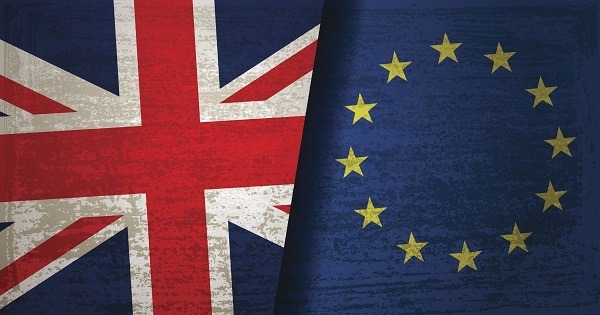With just over 12 weeks until the UK’s transition period with the European Union (EU) ends, and no trade deal yet agreed, carmakers with British-based plants are starting to worry about the possibility of tariffs on their imported and exported parts and vehicles. In particular, Japanese manufacturers Toyota and Nissan are demanding that the UK government cover any additional tariffs should a free-trade agreement with the EU fail to materialise, according to Nikkei.
Without a deal, a 10% tariff would be added to any parts imported and exported to and from the UK. With thousands of parts crossing the border as carmakers rely on ‘just in time’ deliveries, plus a high number of vehicles exported from British plants to European markets, the imposition of tariffs would dramatically impact the profits of those building automotive-related products in the country.
According to the UK Society of Motor Manufacturers and Traders (SMMT), around 1.3 million passenger cars were built in the UK during 2019, 1.05 million of which were exported, with 55% of these going to the EU. In addition, 88.6% of the 2.3 million passenger cars sold in the UK during 2019 were imported, with 78.1% of these coming from the EU.
In 2018, the SMMT claimed that import tariffs would push up the cost of UK-built cars sold in the EU by an average £2,700 (€3,000) and that of light commercial vehicles by £2,000, impacting demand, profitability and jobs. UK buyers of EU cars or vans would also face additional costs – an average of £1,500 per car, £1,700 per van – if manufacturers or dealers were unable to absorb the costs.
Less competitive
Nikkei reports that Nissan and Toyota’s profit margins are expected to be in a ‘narrow range of several percent.’ Therefore, it would be impossible for the manufacturers to absorb the cost of tariffs, and would likely have to increase prices of vehicles as a result. Should this happen, the carmakers would become less competitive in the EU market, making it difficult to continue doing business in the UK. Nikkei also reports that Nissan and Toyota executives acknowledge they are demanding that the UK cover an increase in tariffs.
Volkswagen has warned that it would be unable to absorb any tariffs placed on vehicle imports. The carmaker has no manufacturing presence in the UK. As the country’s second-largest brand by market share (according to SMMT figures), it is possible the company will look to stockpile vehicles in the country before the end of the transition period.
No guarantees
The Japanese carmakers may be unable to avoid tariffs, even if a trade deal is struck, as the EU is refusing to mark Japanese and Turkish-built car parts as ‘British-made’. This will alter the balance of components in a vehicle towards the ‘non-UK’ threshold that would impose tariffs on exports from the country to the EU, even if a free-trade agreement is reached.
Manufacturers with plants based in the UK will need to prove that exported goods are actually British-made, with a specified threshold of British parts, expected to be around 50%. Under the terms of any anticipated deal with the EU, components from countries in the bloc will count as British, a move known as ‘cumulation’.
This move could see Toyota and Nissan look to pull some production back to Japan, as has already occurred with the Nissan X-Trail. The fact that the UK has negotiated a free-trade agreement with Japan would make this process easier, as vehicles can then be imported to the country tariff-free.
UK Prime Minister Boris Johnson has said that going into next year ‘without a deal’ is acceptable if the UK and the EU cannot agree on one by the time of an EU summit on 15 October.
‘We remain committed to working with the automotive industry to try to ensure an outcome that reflects business interests across the UK,’ a government spokesperson told Nikkei. ‘A negotiated outcome remains our clear preference. We have put forward our proposals and are working hard to reach a deal with the EU. Our aim is a zero tariff, zero quota-free trade agreement, as avoiding tariffs is beneficial to both sides.’
Coming Soon: The Autovista Group survey on Brexit exploring your views on its impact on trade and business. Sign up to the Autovista Group Daily Brief for notifications.



 Schließen
Schließen